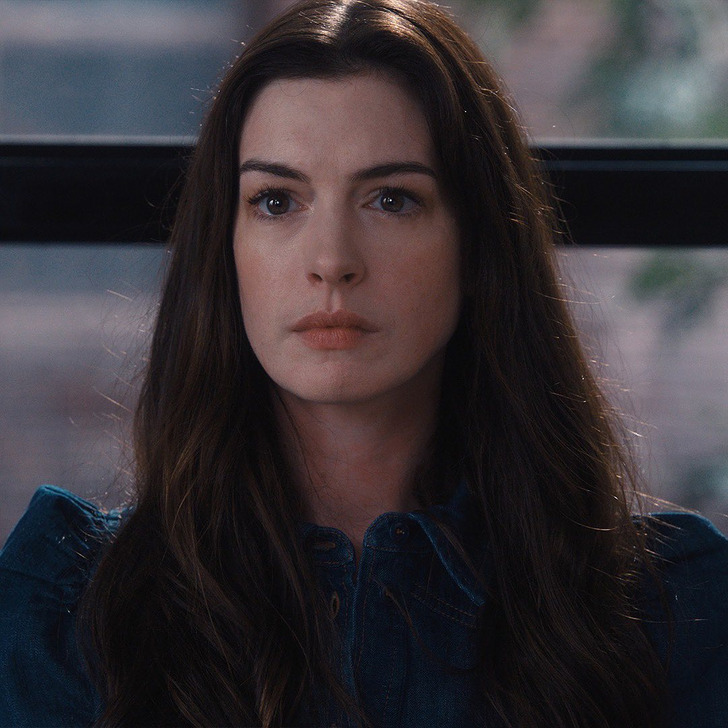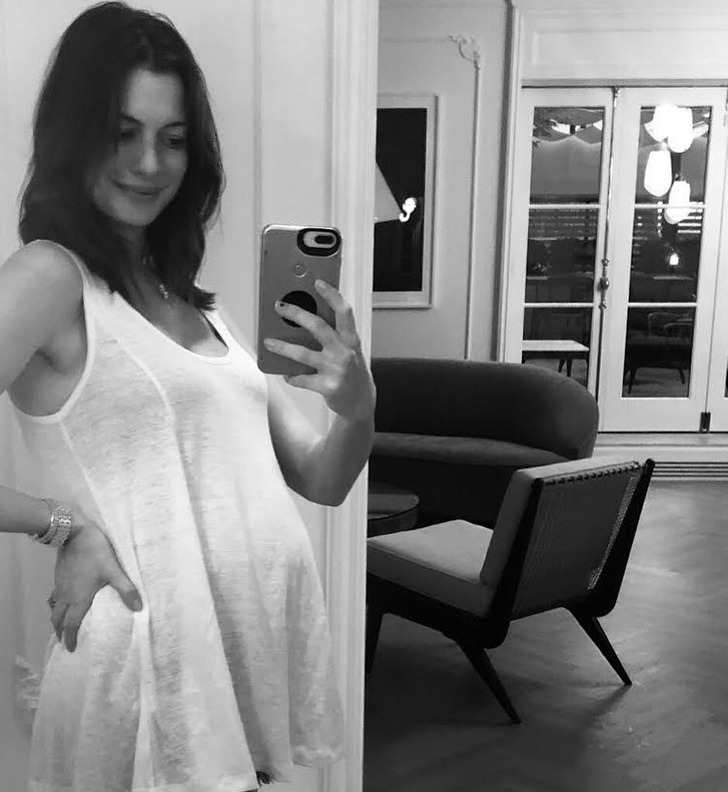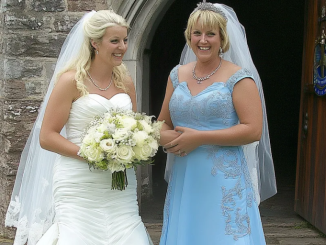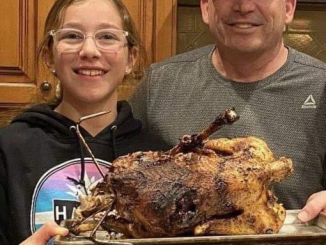Anne Hathaway reflects on her challenging journey to motherhood and the heartfelt influence her openness about her experience has had over the years.
Oscar-winning actress Anne Hathaway, who is a mother to sons Jonathan, 8, and Jack, 4, with her husband Adam Shulman, recently looked back on her challenging journey to motherhood. She shared how she faced a miscarriage while performing in the Off-Broadway play Grounded for nearly six weeks in 2015.
Reflecting on her experience, she told in a cover story published on March 25, «The first time it didn’t work out for me. I was doing a play and I had to give birth onstage every night.»
During that time, she felt that «it was too much to keep it in when I was onstage pretending everything was fine,» and chose to be honest about her struggles with her friends and family. «I had to keep it real otherwise.»
Later on, she extended this same openness to the public when announcing her pregnancy. She explained, «When it did go well for me, having been on the other side of it — where you have to have the grace to be happy for someone — I wanted to let my sisters know, ’You don’t have to always be graceful. I see you, and I’ve been you.’»
«It’s really hard to want something so much and to wonder if you’re doing something wrong,» she added. The Oscar winner further recalled her shock at learning how many pregnancies end in miscarriage. According to the Mayo Clinic, 10% to 20% of known pregnancies end in miscarriage, though the actual number is likely higher. She wished that this information was more widely disseminated.
Anne continued, «I thought, ’Where is this information? Why are we feeling so unnecessarily isolated?’ That’s where we take on damage. So I decided that I was going to talk about it.»
When Anne Hathaway announced her second pregnancy on Instagram in 2019, she accompanied it with a powerful caption.
«It’s not for a movie…» Hathaway wrote, referring to her baby bump. «All kidding aside, for everyone going through infertility and conception hell, please know it was not a straight line to either of my pregnancies. Sending you extra love.»
Reflecting on the impact of her candid post, she shared, «The thing that broke my heart, blew my mind, and gave me hope was that for three years after, almost daily, a woman came up to me in tears and I would just hold her, because she was carrying this (pain) around, and suddenly it wasn’t all hers anymore.»
Reflecting on her experience, she shared that given «the pain I felt while trying to get pregnant, it would’ve felt disingenuous to post something all the way happy when I know the story is much more nuanced than that for everyone.»
Recently another actress, Nicole Kidman, also shared her struggles having children.
The Legacy of Roy Rogers and Dale Evans: Meet the Cowboy Icon’s Nine Children
Roy Rogers, famously dubbed the “King of the Cowboys”, and his spouse Dale Evans, known as the “Queen of the West”, emerged as early luminaries in Hollywood’s nascent television era.
Rogers, celebrated for his role as the singing cowboy alongside his loyal palomino Trigger, ascended to become the preeminent star of Westerns during his time. He starred in more than a hundred films and headlined his own television series, The Roy Rogers Show.
Over the course of his life, Rogers fathered a total of nine children through his marriages with Grace Arline Wilkins and Dale Evans. While some of his offspring followed his footsteps into the entertainment industry, others pursued quieter lives away from public scrutiny. Here’s an individual glimpse into each of Roy Rogers’ children:

Cheryl Rogers: Adopted in 1941 with his second wife, Grace Arline Wilkins, from Hope Cottage in Texas. Cheryl grew up in the presence of her father’s beloved horse Trigger and appeared in several of his films during her childhood, including Meet Roy Rogers and Trail of Robin Hood.
Linda Lou Rogers: Born two years after Cheryl’s adoption to Grace. Linda married Gary Johnson, a minister, and the couple shared over four decades together until his passing in 2008. Linda now resides in California, surrounded by their children and grandchildren.
Roy Rogers Jr. (Dusty): The only biological son of Roy Rogers, born shortly before Grace’s untimely death due to childbirth complications. Dusty made childhood appearances on The Roy Rogers Show and later managed his father’s career. He also performed with the Sons of the Pioneers and formed his band, Roy Rogers Jr. and the High Riders.

Robin Elizabeth Rogers: The only child born to Dale Evans and Roy Rogers, Robin tragically passed away before her second birthday due to complications from the mumps. In her memory, Dale authored the book Angel Unaware.
Dodie Rogers: Adopted at seven months old, Dodie, of Native American heritage, married Jon Patterson, a NASA employee, and they welcomed a daughter named Kristin. Dodie now enjoys her role as a grandmother.
Mimi Rogers: Born Marion Fleming in Edinburgh, Scotland, Mimi was discovered by Roy and Dale in a children’s home due to her exceptional singing talents. She became a cherished member of their family, marrying Dan, a Marine Corps member, with whom she had three children before his passing. Mimi is now a grandmother herself.

Debbie Rogers: Adopted during the Korean War after becoming orphaned, Debbie tragically died at the age of 12 in a bus accident in Los Angeles while traveling with other children from her church.
Sandy Rogers: Adopted following Robin’s passing, John David “Sandy” Rogers later joined the U.S. Army but sadly passed away at age 18 in a choking incident at a military hospital in Germany.
Tom Fox: Dale’s biological son from her previous marriage, Tom was raised by Roy and Dale. He pursued a career as a school teacher and music minister before his passing in 2012.

The saga of Roy Rogers and Dale Evans’ family is marked by a tapestry of happiness, sorrow, and love, emblematic of their enduring family values and profound legacy.



Leave a Reply